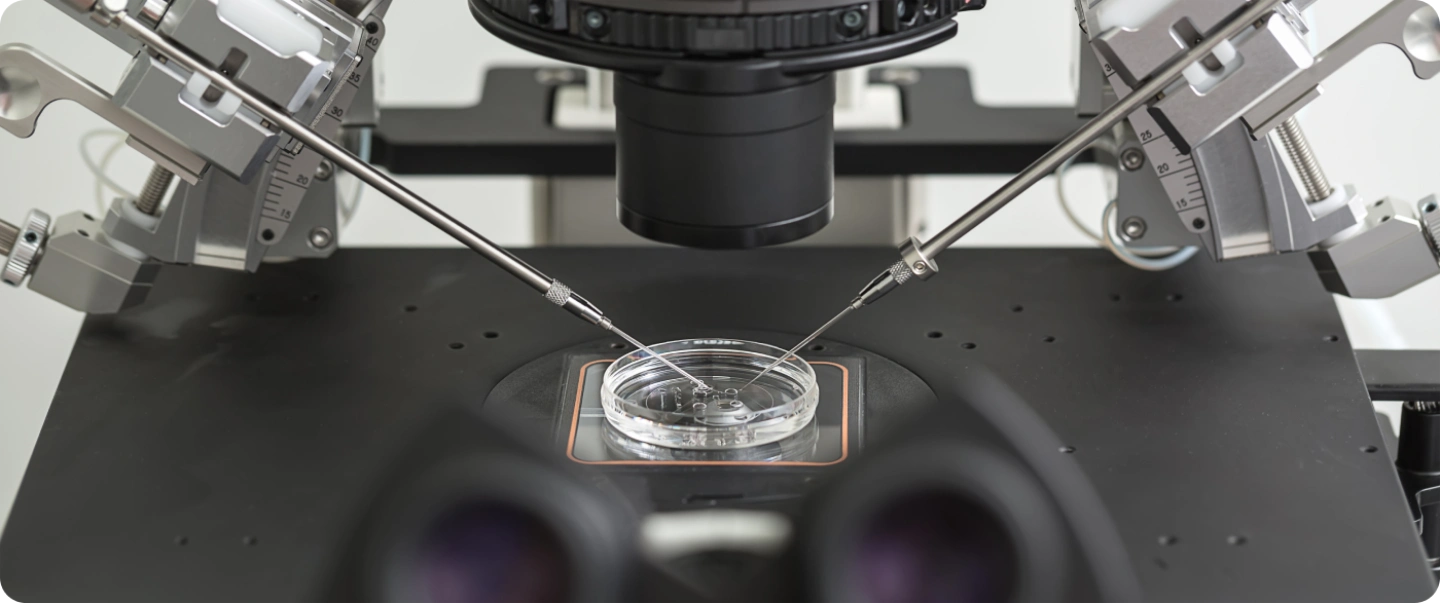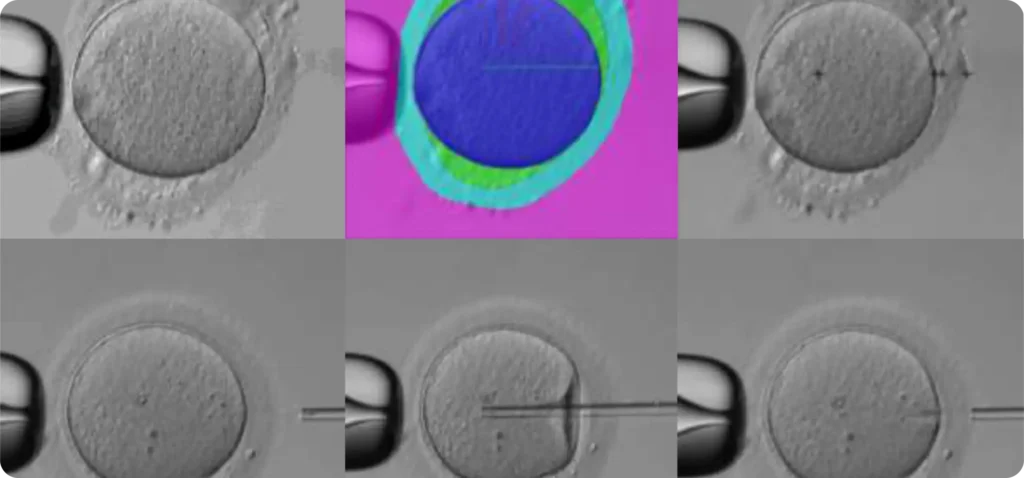World’s first IVF automation

In Context
The demand for In Vitro Fertilisation (IVF) is rising due to delayed parenthood and changing lifestyle factors, in addition to infertility affecting 15% of couples.
Intracytoplasmic sperm injection (ICSI) is an IVF procedure involving injection of the sperm into the oocyte. This is highly operator dependent, with success rates as low as 30% – 40%.
The Challenge
Overture Life set out to automate ICSI and has partnered with Perdigó and embryology experts to develop its first Proof of Concept and Clinical prototype systems.
The manual ICSI process involves complex tools and decision-making. This is why it has remained an unsolved biotechnology challenge until now.
Perdigó's Approach
The initial work has focussed on requirements specification and system architecture definition. When automating processes, it is important to recognise that the best workflow does not necessarily replicate the manual procedure.
As a research project, priority has been given to develop a functional prototype iteratively. This has involved several engineering disciplines, from robotics and mechatronics to optics and computer vision.
The resulting robotic system, with micron-scale precision and AI-powered vision, can (a) identify the oocyte, (b) segment its different regions of interest, (c) create a procedure plan, and (d-f) perform an intracytoplasmic sperm injection automatically.

Delivered Value
This automated ICSI platform marks a World’s first breakthrough in fertility treatment technology.
Overture Life was able to use the prototype system not only to perform pre-clinical validations but also a historical pilot clinical trial in which the World’s first babies were conceived with automated intracytoplasmic sperm injection.